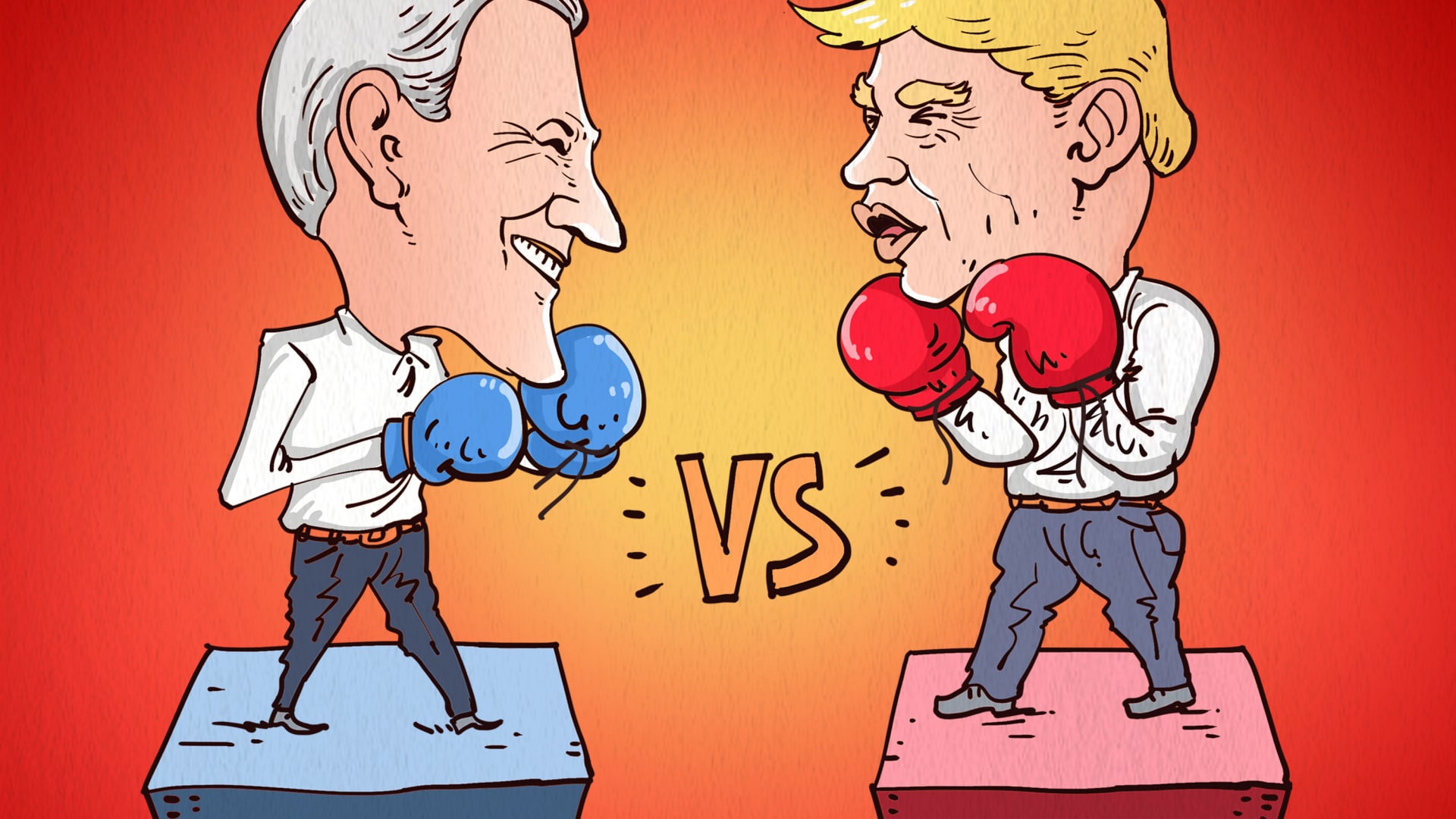A flood of new polls for the 2024 presidential election have one common denominator: Republican front-runner Donald Trump is leading incumbent President Joe Biden in a hypothetical duel in November.
In four separate polls released over the weekend by The New York Times/Siena College, Fox News, The Wall Street Journal and CBS News/YouGov, Trump’s lead among registered voters ranged from two to five points.
The Fox News and Wall Street Journal polls showed Trump with a two-point lead over Biden, 49-47 and 47-45, respectively. This was within their margin of error of 2.5%.
In the CBS News/YouGov poll, Trump was ahead by four points (52 to 48), outside the poll’s margin of error of 2.8%.
The Times/Siena poll showed a slightly larger lead for Trump of five points, 48-43, also outside the poll’s 3.5% margin of error.
Taken together, they paint a picture of a race that is extremely close but in which Trump’s lead is solidifying.
In addition to the hypothetical head-to-head lead, the polls also suggest a deeper shift in voter perceptions of two men who have repeatedly battled each other over the past five years: They suggest that Biden may be losing his long-held favorability advantage over Trump.
In all four polls, Trump had a higher popularity rating among respondents than Biden, although some were within the polls’ margins of error.
This was unprecedented in the 2020 election cycle, when Biden ran as a candidate promising to unite a country bitterly divided after four years under Trump.
In October 2020, a Times/Siena poll found that 52% of respondents viewed Biden favorably, while only 43% viewed then-President Trump favorably.
Last month, however, the tide turned. Only 38% of Times/Siena respondents expressed a positive opinion of Biden, while 44% viewed Trump favorably. Similar divisions were reflected in Fox News and Wall Street Journal polls.
Surveys represent a snapshot in time and do not necessarily allow conclusions to be drawn about future results. The Biden and Trump campaigns did not immediately respond to CNBC’s requests for comment on the apparent shift in sympathy.
The economy
Biden’s popularity still lagged even as voters expressed more optimism about the economy, an issue that has weighed heavily on the president’s re-election campaign so far.
In the Wall Street Journal poll, Biden received the highest marks in his campaign so far for his handling of the economy: 40% of voters approved of his handling of the economy. That’s four points more than the same question in December.
Still, the CBS News/YouGov poll suggested that voters remember the Trump economy through rose-colored glasses.
When asked a good/bad question about the state of the U.S. economy under Trump, 65% of respondents said it was “good.” When asked how the economy is doing today, only 38% said it is good.
A question measuring perceptions of inflation asked voters whether they thought prices would rise or fall under the different policies of Trump and Biden. 55 percent said Biden’s policies would drive up prices, while just 34 percent said Trump’s policies would do the same.
Trump said he is considering the possibility of imposing a tariff of 60% or more on Chinese goods and a universal tariff of 10% on all U.S. imports if elected president. Economists and analysts say major tariff hikes would likely drive up prices for many consumer goods.
Biden has struggled tooth and nail to convince voters that the post-coronavirus economic recovery is the result of his economic agenda, which his advisers have dubbed “Bidenomics.” But voters, still feeling inflationary pressure on their budgets, still have to give Biden credit for the objectively strong economy, even as they become more optimistic about its trajectory.
The Fox News poll surveyed 1,262 registered voters between February 25 and February 28, with a margin of error of +/-2.5%. The Wall Street Journal poll surveyed 1,745 registered voters between February 21 and February 28, with a margin of error of +/-2.5%.
The CBS News/YouGov poll surveyed 2,159 Americans between February 28 and March 1, with a margin of error of +/-2.8%. The New York Times/Siena College poll surveyed 980 registered voters Feb. 25-28, with a margin of error of +/-3.5%.
Source link
2024-03-04 22:47:21
www.cnbc.com







